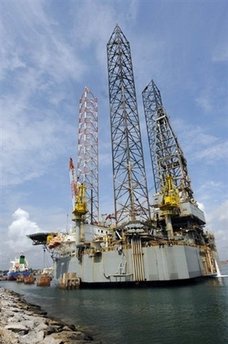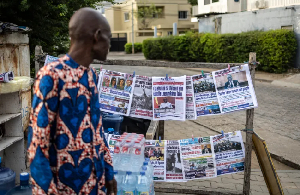A five-day Oil, Shipping and Bunkering Africa Conference ended in Accra on Thursday.
The event, which was the third to be held in Ghana was organized by PETROSPOT, a United Kingdom (UK) independent publishing, training and events organization that focuses on the maritime, energy and transportation industries.
The conference was sponsored by the Ghana Oil Company Limited (GOIL) and supported by companies in Ghana, Africa and outside Africa.
Mr. Alex Josiah Adzew, Technical and Special Products Marketing Manager of GOIL said that the conference that was focused on Africa’s fast-growing offshore oil and gas and services sector would also attract people eager to learn more and meet new contacts.
He said Ghanaian companies were buying bunker fuel at local prices which were expensive than prices at the international market.
Mr. Alex Josiah Adzew said GOIL, being the leading oil company that supplies bunker fuel to ships in Ghana, was affected by the pricing.
He noted that vessels leave the shores of Ghana to the Ivory Coast, Nigeria and other African countries to purchase bunker fuel because of the high cost of fuel.
Mr. Adzew said the situation resulted in Ghana losing revenue in the form taxes, and called on the National Petroleum Authority to de-regulate the prices of bunker fuel in the country.
Mr. Adzew said the Government lacked facilities to store bunker fuel, and urged the private sector to partner with interested companies to build storage facilities to help control the pricing.
He said GOIL was the oil company that has a storage facility in the country at Tema, which could store bunker fuel between five to ten million liters.
Mr. Adzew said, “GOIL is planning to expand the facility to 30 million liters storage facility soon and to build another one at Takoradi.”
He said the company supplied bunker fuel to some vessels through oil traders in Ghana and asked banks, individual companies and government to support the oil traders in their business.**
Business News of Friday, 6 July 2012
Source: GNA
Africa conference on bunkering, oil and shipping ends in Accra













